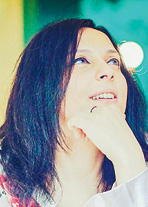BY Emma Khalil

“I don’t feel obliged writing this diary, rather I feel responsible for recording the history of Egyptian art. It will further make me at ease when I spread the truth,”
“ I was one of the few who refused to drink alcohol during a time when celebrities often relied on alcohol to help calm their nerves and perform on stage, i was appalled by the statements of some actors and actresses who were enrolled in my group denying my teaching of theatrical arts.. and If anyone of the actors in El-Rihany group had talked honestly about how they learned to stand on stage or had acknowledged the phases they went through before becoming stars, even if it was just to compliment me, that would have been better for precisely recording the history of art in this era instead of denying the truth,”
This words had been said by (Elrihani) according to Rihani’s diaries, which were published by Dar El-Helal 10 years after his death.
Yeah, Rihani was a different artist,. He was led by his feelings and always believed that an original actor should dwell in creativity and respect his/her own art. So his dedication to sobriety emphasized that his art was genuine.
While known as a prominent comedian, Rihani was more interested in drama than comedy. And while he successed in making people laughing he also successed in making them crying by his unique philosophy. So he was named
(The crying laugher) or (the laughing philosopher) ..
Rihani is an Egyptian actor of Iraqi origin. He is one of the leading theater and film pioneers in the Arab world in general and Egypt, and one of the most famous comedians in the history of Arab visual arts. he established his own theatrical group in 1910 for his comedic works. also he integrated French theater into Egyptian theatre through his theatrical group.
His drama works were often inspired by events in his life including his mother’s shame of his acting career and the brother he lost. But he was forced to leave drama due to his rising debts and audiences who preferred comedy and also he succesed to leave his print.
He used the stage to spread awareness to audiences about the demeaning living conditions of Egypt in this time by integrating patriotism with humor on stage.
Rihani was so fond of theater that why he fell into debt and spent everything he had for good quality theater. He had such passion for his art that he agreed with all theaters to charge him for the audiences’ tickets.
Rihani was admired and honored by many political and social leaders in egypt including Talaat Harb, Saad Zaghlol, Hoda Sha’arawi and Tawfik Nassim.
Among his list of theater plays were “El Rial” (1917), “El Ashra El Tayba” (“Good Companionship”) (1920) that featured music by Sayed Darwish, “El Geneih El Masry” (“Egyptian Pound”) and “El Dunia Lama Tedhak” (“When Luck Smiles”), among others.
His movies included ‘Yacout’ in 1934, ‘Beslamto Ayez Yetgwz’ (“He wants to get married”) in 1936, “Abou Halmoos” in 1941 and “Si Omar.”
He died at age 60 while filming his last movie, “Ghazal Al Banat.”
Died the artist whose have a big share in egyptian Identity Configuration in his time.. died and leave a great heritage of real Egyptian art..died the laughing philosopher and became one of the most important puplic figures and leading theatre in Egypt and arab world..
And before his death He leaved his (lamentation letter) and he said :
“died Najib died the man who complained of him the bricks of the earth .. died Najib, died who does not like the wonder and fasting in Rajab, died man who knows only frankness in the time of hypocrisy ,, died the man who knew only the forgiveness and open handness in the time of stinginess and scarcity and avarice .. Rihani died sixty goodbye for him “.
Thank you, the crying laugher.








































admin in: How the Muslim Brotherhood betrayed Saudi Arabia?
Great article with insight ...
https://www.viagrapascherfr.com/achat-sildenafil-pfizer-tarif/ in: Cross-region cooperation between anti-terrorism agencies needed
Hello there, just became aware of your blog through Google, and found ...